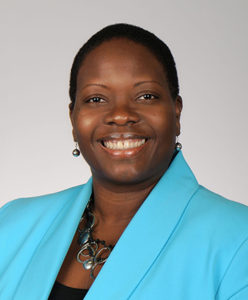As librarians, sometimes we host book clubs or book discussions for library users on various books. In this blog post, I will interview Shannon Jones, the Director of Libraries for the Medical University of South Carolina, about MLA Reads, a virtual book discussion group for information professionals that centers on conversations about equity, diversity, and inclusion. Jones will give insight into the importance of hosting this virtual book discussion group for information professionals.
Jamia: How did you come up with the idea for MLA Reads?
Shannon: The MLA Reads program was the brainchild of my colleague Kelsa Bartley, Education and Outreach Librarian, Louis Calder Memorial Library, University of Miami, and myself. This virtual book discussion group evolved from an implicit bias immersion session held at the 2018 Medical Library Association Annual Conference. At the conclusion of that session, participants expressed the need for a safe space where they could learn, discuss, and process the implications of biases in their work and personal lives. The purpose of the project is to engage participants in thought-provoking and interactive conversations on diversity, equity, and inclusion topics of interest in a safe, welcoming, and supportive environment. To date, we have read Mahzarin Binaji and Anthony Greenwald’s Blindspot: The Hidden Bias of Good People, Dolly Chugh’s The Person You Mean to Be: How Good People Fight Bias, and Damon Tweedy’s Black Man in a White Coat. In February 2022, we will read Isabel Wilkerson’s Caste: The Origins of Our Discontents.
Jamia: Why do you think it is essential that information professionals take the time to read those important books?
Shannon: There are a variety of reasons why information professionals can benefit from reading books on DEI topics, and the following are two important ones for me.
- Acknowledging Diverse Lived Experiences: We all have different lived experiences, and reading DEI books is an excellent strategy for acknowledging those differences and learning about the experiences of others. In a sense, DEI books offer readers a glimpse into the lived experiences through the eyes of individuals who hold identities that differ from their own.
- Adopting a Growth Mindset: Enabling meaningful change in the DEI space that we all occupy requires a growth mindset. This growth is focused on learning, and taking action is the result of learning. The aforementioned books are loaded with strategies and tips for taking real action and then using them to work in solidarity with people from marginalized communities. These actions could result in re-evaluating long-held perspectives or attitudes, assessing one’s own biases, repairing harm to others, advocating or sponsoring individuals from BIPOC and LGBTQIA++ communities, and acknowledging individual privilege.
Reading the information on essential DEI topics is just one action that information professionals can take to disrupt the biases and inequities that plague our libraries. However, moving the DEI needle will take much more than reading. Our libraries will not become places where people feel safe, welcomed, seen, heard, valued, and included unless we as information professionals decide to be and do better. Being and doing better requires that we disrupt the narratives that our libraries are magical places where everyone who enters the doors has an equitable experience. It’s time for us to get real about our DEI work.
Jamia: How can people become a part of this virtual book club?
Shannon: We invite information professionals from all library types to join the MLA Reads Virtual Book Club. More information about joining the next discussion is available at https://sites.google.com/view/aamla-mla/home.
A description of the MLA Reads journey is also chronicled in a forthcoming chapter (2022) in the ACRL book Implementing Excellence in Diversity, Equity, and Inclusion: A Handbook for Academic Libraries, edited by Brian Lym and Corliss Lee with Tatiana Bryant, Jonathan Cain, and Kenneth Schlesinger.
Biography:


See also:


